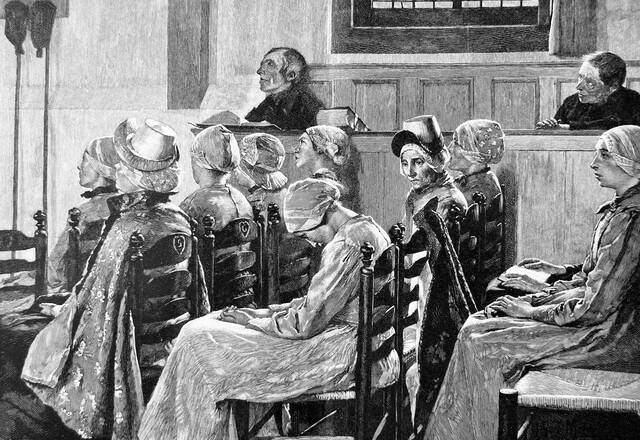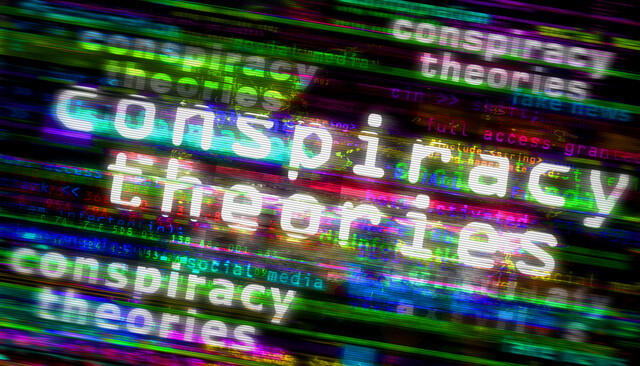Online Class: Philosophy 101

no certificate
with CEU Certificate*
-
13Lessons
-
28Exams &
Assignments -
2,622Students
have taken this course -
12Hours
average time -
1.2CEUs
Course Description
Philosophy, often shrouded in mystery and misconception, stands as a cornerstone in the pursuit of understanding the complexities of human existence. Far from being a mere academic exercise, philosophy permeates every aspect of our lives, shaping our understanding of existence, the nature of reality, the possibilities of knowledge, and the foundations of ethical behavior.
At its core, philosophy seeks to unravel the intricacies of existence. It asks profound questions: What does it mean to exist? What is the nature of reality? How do we come to know what we know? These questions have been pondered by thinkers from the ancient times to the present, reflecting humanity's enduring quest for understanding.
One of the central themes in philosophy is the exploration of reality itself. This includes metaphysical inquiries about the nature of the universe, the relationship between mind and matter, and the fundamental structure of reality. Philosophers have long debated whether our understanding of reality is shaped by our perceptions or if there exists an objective reality independent of our experience.
Another significant aspect of philosophy is epistemology, the study of knowledge. Here, philosophers investigate the nature and scope of knowledge, asking how we acquire it, and what it means to know something. The evolution of epistemology has seen a range of theories, from empiricism, which emphasizes the role of experience in knowledge acquisition, to rationalism, which posits that reason is the primary source of knowledge.
The philosophy of mind, a relatively recent field, delves into the nature of consciousness and the relationship between the mind and the body. This area of study is particularly relevant in today's world, where advances in neuroscience and artificial intelligence continually challenge our understanding of consciousness and self-awareness.
Ethics, a critical branch of philosophy, deals with questions of morality and human behavior. It seeks to define what is right and wrong and explores the principles that should guide our actions. Philosophers have proposed various ethical theories, such as utilitarianism, which advocates for actions that maximize overall happiness, and deontology, which focuses on the morality of actions themselves rather than their consequences.
In addition to these areas, philosophy also encompasses logic, the rigorous analysis of argumentation and reasoning. Logic serves as the foundation for rational discourse and critical thinking, essential skills in any field of study or profession.
Philosophy's influence extends to social and political thought as well. Social and political philosophy examines the nature of justice, the rights of individuals versus the needs of the community, and the principles underlying political institutions. This field has become increasingly relevant in our globalized world, where diverse cultures and political systems interact and sometimes clash.
One of the most intriguing aspects of philosophy is its engagement with unsolved problems and paradoxes. These intellectual puzzles challenge our understanding and push the boundaries of philosophical thought. They serve not only as points of academic interest but also as catalysts for deeper reflection and inquiry.
Throughout history, great philosophers have shaped the way we think about these fundamental questions. From the ancient Greeks like Plato and Aristotle, who laid the foundations of Western philosophy, to modern thinkers who have challenged and expanded these ideas, the legacy of these philosophers is immeasurable. Their contributions have not only advanced philosophical thought but have also had profound implications in other fields such as science, politics, and the arts.
In recent times, the study of philosophy has been enriched by the integration of diverse perspectives. Philosophers from different cultures and backgrounds bring new insights and challenge traditional Western paradigms. This inclusivity has led to a more comprehensive and nuanced understanding of philosophical issues.
The relevance of philosophy in the modern world cannot be overstated. In an era of rapid technological advancement and complex societal challenges, philosophical inquiry helps us navigate ethical dilemmas, question assumptions, and develop critical thinking skills. Whether in the realm of artificial intelligence, bioethics, or social justice, philosophical perspectives provide essential guidance and clarity.
In conclusion, philosophy, far from being an abstract or irrelevant discipline, is deeply integrated into the fabric of our lives. It empowers us to examine the fundamental questions of existence, ethics, knowledge, and reality. By engaging with philosophical thought, we not only enrich our understanding of the world but also develop the critical thinking and analytical skills essential for responsible citizenship and personal growth. Philosophy, therefore, is not just an academic pursuit, but a vital tool for navigating the complexities of our ever-changing world.
- Completely Online
- Self-Paced
- Printable Lessons
- Full HD Video

- 6 Months to Complete
- 24/7 Availability
- Start Anytime
- PC & Mac Compatible
- Android & iOS Friendly
- Accredited CEUs

Course Lessons
Lesson 1. Understanding Philosophy
 Lesson 1 Video A
Lesson 1 Video A
 Lesson 1 Video B
: Introduction Discussion
Lesson 1 Video B
: Introduction Discussion
 Review Practice Worksheet: Lesson-1-Activity-11364.pdf
Review Practice Worksheet: Lesson-1-Activity-11364.pdf Lesson discussions: Philosophy Course; Reasons for Taking this Course
Lesson discussions: Philosophy Course; Reasons for Taking this Course Complete: Lesson 1 Assignment
Complete: Lesson 1 Assignment Complete Assignment: An Introduction
Complete Assignment: An Introduction Assessment: Lesson 1: What Is Philosophy?
Assessment: Lesson 1: What Is Philosophy?
Lesson 2. Philosophy Unraveled: Deconstructing Complex Terms
 Lesson 2 Video A
Lesson 2 Video A
 Lesson 2 Video B
: Lesson Discussion Video
Lesson 2 Video B
: Lesson Discussion Video
 Review Practice Worksheet: Lesson-2-Downloadable-11365.pdf
Review Practice Worksheet: Lesson-2-Downloadable-11365.pdf Complete: Lesson 2 Assignment
Complete: Lesson 2 Assignment Assessment: Lesson 2: Coming to Terms: A Philosophical Lexicon, Part I
Assessment: Lesson 2: Coming to Terms: A Philosophical Lexicon, Part I
Lesson 3. Exploring Philosophical Lexicon: Completing the Journey
 Lesson 3 Video A
Lesson 3 Video A
 Lesson 3 Video B
: Lesson Discussion Video
Lesson 3 Video B
: Lesson Discussion Video
 Review Practice Worksheet: Lesson-3-WordSearch-11366.pdf
Review Practice Worksheet: Lesson-3-WordSearch-11366.pdf Complete: Lesson 3 Assignment
Complete: Lesson 3 Assignment Assessment: Lesson 3: A Manner of Speaking: A Philosophical Lexicon, Part II
Assessment: Lesson 3: A Manner of Speaking: A Philosophical Lexicon, Part II
Lesson 4. Metaphysics Explained
 Lesson 4 Video A
Lesson 4 Video A
 Lesson 4 Video B
: Lesson Discussion Video
Lesson 4 Video B
: Lesson Discussion Video
 Review Practice Worksheet: Lesson-4-Downloadable-11367.pdf
Review Practice Worksheet: Lesson-4-Downloadable-11367.pdf Complete: Lesson 4 Assignment
Complete: Lesson 4 Assignment Assessment: Lesson 4: Metaphysics
Assessment: Lesson 4: Metaphysics
Lesson 5. What is Knowledge?
 Lesson 5 Video A
Lesson 5 Video A
 Lesson 5 Video B
: Lesson Discussion Video
Lesson 5 Video B
: Lesson Discussion Video
 Review Practice Worksheet: Lesson-5-WorkSheet-11368.pdf
Review Practice Worksheet: Lesson-5-WorkSheet-11368.pdf Complete: Lesson 5 Assignment
Complete: Lesson 5 Assignment Assessment: Lesson 5: Epistemology
Assessment: Lesson 5: Epistemology
Lesson 6. The Intricacies of Mind and Identity
 Lesson 6 Video A
Lesson 6 Video A
 Lesson 6 Video B
: Lesson Discussion Video
Lesson 6 Video B
: Lesson Discussion Video
 Review Practice Worksheet: Lesson-6-WordSearch-11369.pdf
Review Practice Worksheet: Lesson-6-WordSearch-11369.pdf Complete: Lesson 6 Assignment
Complete: Lesson 6 Assignment Assessment: Lesson 6: Philosophy of Mind
Assessment: Lesson 6: Philosophy of Mind
Lesson 7. The Nature of the Divine
 Lesson 7 Video A
Lesson 7 Video A
 Lesson 7 Video B
: Lesson Discussion Video
Lesson 7 Video B
: Lesson Discussion Video
 Review Practice Worksheet: Lesson-7-WorkSheet-11370.pdf
Review Practice Worksheet: Lesson-7-WorkSheet-11370.pdf Lesson discussions: God
Lesson discussions: God Complete: Lesson 7 Assignment
Complete: Lesson 7 Assignment Assessment: Lesson 7: Philosophy of Religion
Assessment: Lesson 7: Philosophy of Religion
Lesson 8. Navigating the Complex Landscape of Ethical Thought
 Lesson 8 Video A
Lesson 8 Video A
 Lesson 8 Video B
: Lesson Discussion Video
Lesson 8 Video B
: Lesson Discussion Video
 Review Practice Worksheet: Lesson-8-Activity-11371.pdf
Review Practice Worksheet: Lesson-8-Activity-11371.pdf Complete: Lesson 8 Assignment
Complete: Lesson 8 Assignment Assessment: Lesson 8: Ethics, Part I
Assessment: Lesson 8: Ethics, Part I
Lesson 9. Pleasure and Principle: Divergent Ethics Examined
 Lesson 9 Video A
Lesson 9 Video A
 Lesson 9 Video B
: Lesson Discussion Video
Lesson 9 Video B
: Lesson Discussion Video
 Review Practice Worksheet: Lesson-9-WordSearch-11372.pdf
Review Practice Worksheet: Lesson-9-WordSearch-11372.pdf Complete: Lesson 9 Assignment
Complete: Lesson 9 Assignment Assessment: Lesson 9: Ethics, Part II
Assessment: Lesson 9: Ethics, Part II
Lesson 10. Introduction to Logic: A Journey Through Classical and Symbolic Concepts
 Lesson 10 Video A
Lesson 10 Video A
 Lesson 10 Video B
: Lesson Discussion Video
Lesson 10 Video B
: Lesson Discussion Video
 Review Practice Worksheet: Lesson-10-WordSearch-11373.pdf
Review Practice Worksheet: Lesson-10-WordSearch-11373.pdf Complete: Lesson 10 Assignment
Complete: Lesson 10 Assignment Assessment: Lesson 10: Logic
Assessment: Lesson 10: Logic
Lesson 11. The Essence of Societies: Normative and Descriptive Ethics in Context
 Lesson 11 Video A
Lesson 11 Video A
 Lesson 11 Video B
: Lesson Discussion Video
Lesson 11 Video B
: Lesson Discussion Video
 Review Practice Worksheet: Lesson-11-Downloadable-11374.pdf
Review Practice Worksheet: Lesson-11-Downloadable-11374.pdf Complete: Lesson 11 Assignment
Complete: Lesson 11 Assignment Assessment: Lesson 11: Social & Political Philosophy
Assessment: Lesson 11: Social & Political Philosophy
Lesson 12. Paradoxes Explored
 Lesson 12 Video A
Lesson 12 Video A
 Lesson 12 Video B
: Lesson Discussion Video
Lesson 12 Video B
: Lesson Discussion Video
 Review Practice Worksheet: Lesson-12-Downloadable-11375.pdf
Review Practice Worksheet: Lesson-12-Downloadable-11375.pdf Complete: Lesson 12 Assignment
Complete: Lesson 12 Assignment Assessment: Lesson 12: Unsolved Problems & Paradoxes in Philosophy
Assessment: Lesson 12: Unsolved Problems & Paradoxes in Philosophy
Lesson 13. Exploring the Architects of Philosophy
 Lesson 13 Video A
Lesson 13 Video A
 Lesson 13 Video B
: Lesson Discussion Video
Lesson 13 Video B
: Lesson Discussion Video
 Review Practice Worksheet: Lesson-13-Activity-11376.pdf
Review Practice Worksheet: Lesson-13-Activity-11376.pdf Lesson discussions: Favorite Philosopher; Program Evaluation Follow-up Survey (End of Course); Course Comments; Reasons for Taking this Course
Lesson discussions: Favorite Philosopher; Program Evaluation Follow-up Survey (End of Course); Course Comments; Reasons for Taking this Course Complete: Lesson 13 Assignment
Complete: Lesson 13 Assignment Assessment: Lesson 13: An Overview of the Great Philosophers
Assessment: Lesson 13: An Overview of the Great Philosophers Assessment: The Final Exam
Assessment: The Final Exam
Learning Outcomes
- Define philosophy as a reflective process involving critical analysis of fundamental questions related to human existence and the universe
- Identify and describe major sub-disciplines of philosophy including aesthetics, cosmology, epistemology, ethics, logic, metaphysics, ontology, philosophy of mind, philosophy of religion, and semiotics
- Define and differentiate between a priori and a posteriori knowledge based on epistemological principles.
- Identify and explain the implications of foundationalism in the architecture of knowledge.
- Define the concept of materialism and explain its significance in contemporary academic and scientific contexts.
- Identify and differentiate between monism, dualism, and pluralism as philosophical theories concerning the composition of existence.
- Define monism and differentiate its two main sub-categories: material monism and idealism, using examples from historical and contemporary contexts.
- Explain dualism and its historical development, focusing on contrasting viewpoints of Plato, Aristotle, and Descartes.
- Define propositional knowledge and distinguish between a priori and a posteriori knowledge categories, citing their implications on philosophical inquiry
- Explain the three criteria of propositional knowledge�belief, truth, and justification�and how they contribute to the formation of justified true beliefs (JTBs).
- Define and contrast substance dualism and property dualism, identifying key features and differences in how they conceptualize the mind-body relationship.
- Explain the main arguments of materialism and functionalism, demonstrating how each approach addresses the mind-body problem within the philosophy of mind.
- Define key arguments within the philosophy of religion, such as cosmological, ontological, and teleological, with examples and critiques.
- Demonstrate mastery of lesson content at levels of 70% or higher.
Additional Course Information

- Document Your Lifelong Learning Achievements
- Earn an Official Certificate Documenting Course Hours and CEUs
- Verify Your Certificate with a Unique Serial Number Online
- View and Share Your Certificate Online or Download/Print as PDF
- Display Your Certificate on Your Resume and Promote Your Achievements Using Social Media

Choose Your Subscription Plan
No Certificate / No CEUs
This course only
| Includes certificate | X |
| Includes CEUs | X |
| Self-paced |

|
| Instructor support |

|
| Time to complete | 6 months |
| No. of courses | 1 course |
Certificate & CEUs
This course only
| Includes certificate |

|
| Includes CEUs |

|
| Self-paced |

|
| Instructor support |

|
| Time to complete | 6 months |
| No. of courses | 1 course |
Certificates & CEUs
Includes all 600+ courses
| Includes certificate |

|
| Includes CEUs |

|
| Self-paced |

|
| Instructor support |

|
| Time to complete | 12 Months |
| No. of courses | 600+ |
Certificates & CEUs
Includes all 600+ courses
| Includes certificate |

|
| Includes CEUs |

|
| Self-paced |

|
| Instructor support |

|
| Time to complete | 24 Months |
| No. of courses | 600+ |
Student Testimonials
- "The instructor encouraged my learning capabilities with challenging thoughts along wide of my own in each of the essays. I loved it." -- Marshall G.
- "Professor McKenna was extraordinary in his prompt followups and thought-provoking comments, but usually quite encouraging to me to continue studying the course." -- Richard E.
- "Mac was amazing. He and I had many conversations though email. I wish that he was offering a follow up to this course." -- Beth Y.
- "I think the course was great and very comprehensive." -- Tony A.
- "Great experience with you." -- Yasar S.
- "Good instructor. I enjoyed the course!" -- Carlos C.
- "Every part of the course added to my knowledge and understanding of philosophy." -- Adam B.
- "Instructor was great; responded quickly, very fair, enjoyable to work with. also enjoyed the way it was broken down by categories - logic, ethics, religion, social and political, etc.; I thought the terms and definitions were excellent." -- Mark D.
- "I will be taking Greek Mythology with this same Instructor next." -- Robert K.
- "This is my first philosophy course. No previous experience. Found the content excellent. Easy to follow and understand. Feedback always encouraging which was a great help. Really enjoyed it all. I am converted. I thought philosophy was intense and difficult but I found it interesting, easy to follow. I realize I have only made a small start but it was every encouraging. Will go further with this subject." -- Frankie S.
Related Courses
-
 21 hours
2.1 CEUs
American Wars: American Revolution and Civil War
+ More Info
21 hours
2.1 CEUs
American Wars: American Revolution and Civil War
+ More Info
-
 33 hours
3.3 CEUs
World War l and ll
+ More Info
33 hours
3.3 CEUs
World War l and ll
+ More Info
-
 5 hours
0.5 CEUs
Vocabulary Level 2
+ More Info
5 hours
0.5 CEUs
Vocabulary Level 2
+ More Info
-
 13 hours
1.3 CEUs
American Civil War
+ More Info
13 hours
1.3 CEUs
American Civil War
+ More Info
-
 10 hours
1.0 CEUs
Ancient Civilizations 101
+ More Info
10 hours
1.0 CEUs
Ancient Civilizations 101
+ More Info
-
 4 hours
0.4 CEUs
Salem Witch Trials
+ More Info
4 hours
0.4 CEUs
Salem Witch Trials
+ More Info
-
 11 hours
1.1 CEUs
Vietnam War
+ More Info
11 hours
1.1 CEUs
Vietnam War
+ More Info
-
 5 hours
0.5 CEUs
Vocabulary Level 3
+ More Info
5 hours
0.5 CEUs
Vocabulary Level 3
+ More Info
-
 16 hours
1.6 CEUs
American Government
+ More Info
16 hours
1.6 CEUs
American Government
+ More Info
-
 5 hours
0.5 CEUs
Vocabulary Level 1
+ More Info
5 hours
0.5 CEUs
Vocabulary Level 1
+ More Info
-
 9 hours
0.9 CEUs
Exploring the Life Lessons of Bible Stories
+ More Info
9 hours
0.9 CEUs
Exploring the Life Lessons of Bible Stories
+ More Info
-
 8 hours
0.8 CEUs
American Heroes and Villains
+ More Info
8 hours
0.8 CEUs
American Heroes and Villains
+ More Info
-
 11 hours
1.1 CEUs
Journaling and Memoir Writing
+ More Info
11 hours
1.1 CEUs
Journaling and Memoir Writing
+ More Info
-
 11 hours
1.1 CEUs
World War I
+ More Info
11 hours
1.1 CEUs
World War I
+ More Info
-
 8 hours
0.8 CEUs
Buddhism 101: The Principles of Awakened Living
+ More Info
8 hours
0.8 CEUs
Buddhism 101: The Principles of Awakened Living
+ More Info






